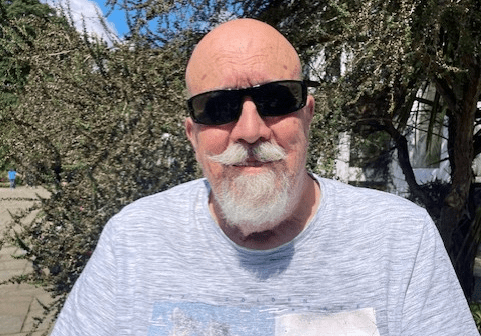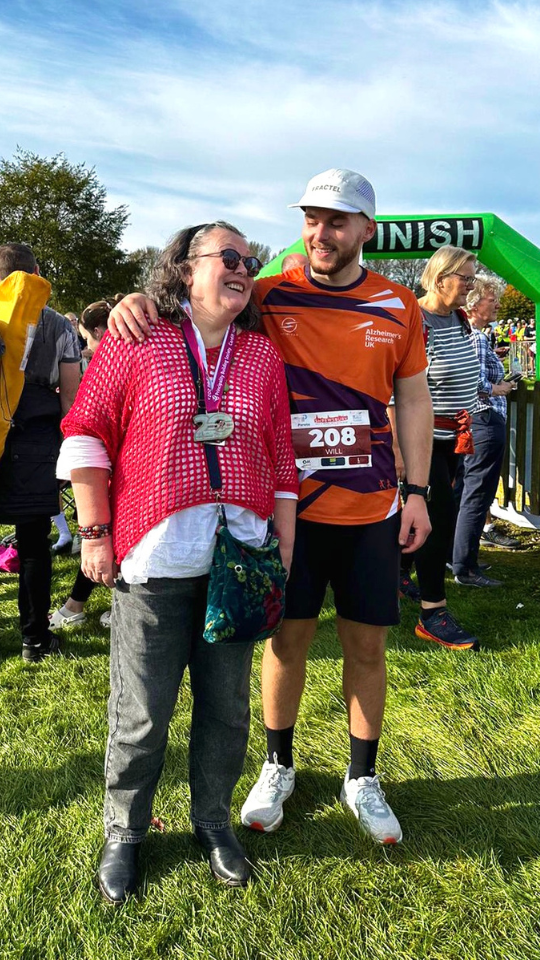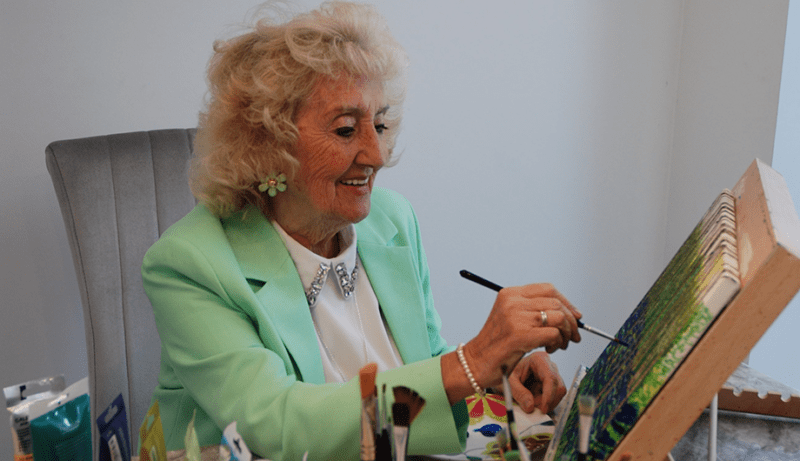
Peter’s story – “My Admiral Nurse was a beacon of light”
Peter shares how his specialist Admiral Nurse has encouraged him to live well with dementia – including by learning to fly an aeroplane .

Peter shares how his specialist Admiral Nurse has encouraged him to live well with dementia – including by learning to fly an aeroplane.
I worked with computers for a lot of my career and keeping my mind active has always been really important to me. I even started playing memory games and tests when I was in my 60s to monitor my memory and cognitive abilities.
Around four years ago, at the age of 77, I noticed a decline in my memory. At first, I just put it down to getting older. Then I heard an advert on the radio asking for people with failing memories to volunteer to join a drug trial. The screening brain scan showed amyloid plaques on my brain which confirmed the clinical psychologist’s suspicion that I had Alzheimer’s disease.
However, it took 12 months of badgering the NHS to confirm the diagnosis and prescribe donepezil, a medication that can slow the progression of Alzheimer’s disease in some people. When I was finally diagnosed, I felt relieved that there was a cause which might be amenable to modification, rather than just the unavoidable passage of time.
Dementia has impacted my day-to-day life in many ways. I was the handy one at home and did most jobs myself, but I find it challenging to learn new tasks now. One car park I visited recently didn’t take cash, so I had to figure out how to download an app, which took at least 30 minutes. I used to relish change, but I really try to avoid it now.
My memories are still there; I just have issues accessing them. So I write in my diary every day and read it back to help bring my memories to the surface. I also have a list that takes me through everything I need to do throughout the day, from taking my medications to turning the computer off. It might sound like Groundhog Day to most people, but it doesn’t bother me because I don’t usually remember the day before anyway!
After my diagnosis, I felt like a lot of healthcare professionals just wrote me off and assumed that because I have dementia, my brain doesn’t work. That just isn’t true. I still have a great IQ – I’m still a genius!
I was fed lots of doom and gloom when I was diagnosed and told that I only had two or three years to live. That was until my dementia specialist Admiral Nurse Liz arrived, and showed me that there is life after dementia. Liz was a beacon of light; she was the first person to actually listen to me and gave me hope when nobody else did. Liz explained that dementia was a disease, and like any other disease, it could be managed and that I could still live well.
As we say about dementia ‘If you haven’t got it, you don’t get it”. But Liz does get it, even though she doesn’t have dementia herself; she is a dementia specialist. Liz also helped my wife understand and accept my diagnosis.
Liz encouraged me to start living again and to see dementia through a different lens. She put me in touch with dementia groups, including Dementia UK’s Lived Experience Advisory Panel (LEAP), which I am now a member of. As a result, I’ve met over 150 people living with dementia and have developed some great relationships.
I’ve learned a lot about dementia from others who are living with the condition and front line researchers I have met while participating in their projects. I didn’t socialise very much before my diagnosis, but I’ve learned that relationships are important and good for your health. I also travel more than I ever have, with regular trips to Birmingham and London for various dementia conferences and meetings.
I feel like dementia has opened a lot of doors and opportunities for me that I wouldn’t have otherwise noticed. I’m learning to play the clarinet, having a go at art, and I’ve even learned to fly an aeroplane. I was annoyed that the DVLA insisted that I renew my driving license every year – even though I’m the best driver in the house! I thought it would be great to be able to show them that I could fly an aeroplane, not just drive a car.
I’ve now completed over 18 hours of flying. I fly with an instructor or co-pilot, who does all the navigation, radio telephony and meteorological stuff that I would otherwise have to tackle to get a pilot’s licence. I prefer to just do the flying. Pilots operate off lists, so I’m pretty good at that. My usual aeroplane is called an Ikarus C42. Presumably the designer was not a student of ancient Greek mythology. It can only fly in good conditions – it must be a fine sunny day.
There are so many things that I enjoy when flying. I was told I wouldn’t be able to learn any new skills when I was diagnosed with dementia, so there is a sense of accomplishment. The sheer pleasure of soaring over the countryside and seeing the beach from a bird’s-eye view is beautiful. I’m able to exercise control of the aircraft, where it’s going, how high it is, and what speed. When you’re losing control of everything else, it feels good to gain control of new things.
I’m passionate about raising awareness of Admiral Nurses and showing people that you can live well with dementia. You hear so many horror stories, but I want to share a more hopeful one, otherwise people with dementia can feel like giving up. Often after people are diagnosed, they sit around and wait for the Grim Reaper to arrive. I think it’s important that we focus on improving both the duration and quality of life after diagnosis.

Peter shares how his specialist Admiral Nurse has encouraged him to live well with dementia – including by learning to fly an aeroplane .

Will shares how his mum's diagnosis impacted the family and highlights the importance of advocating for young carers.

Since being diagnosed with Alzheimer’s disease in 2019, Sylvia has found a new purpose in expressing her feelings through painting.